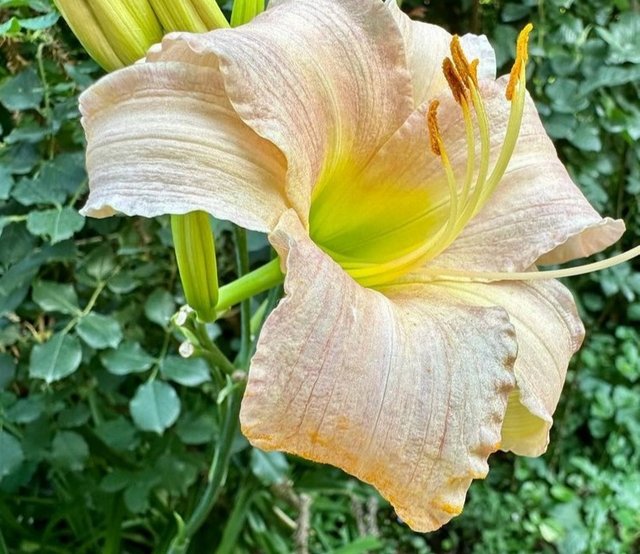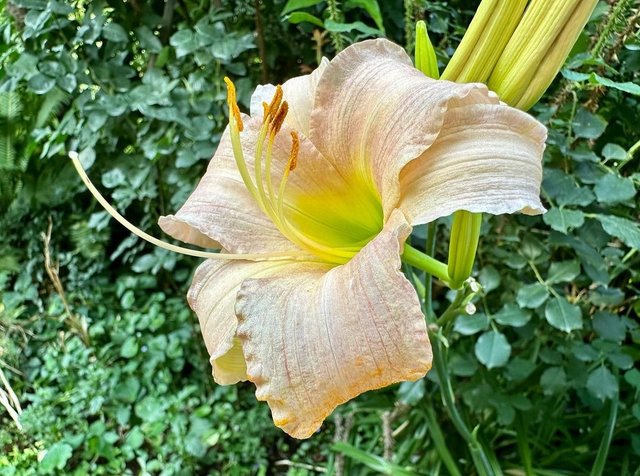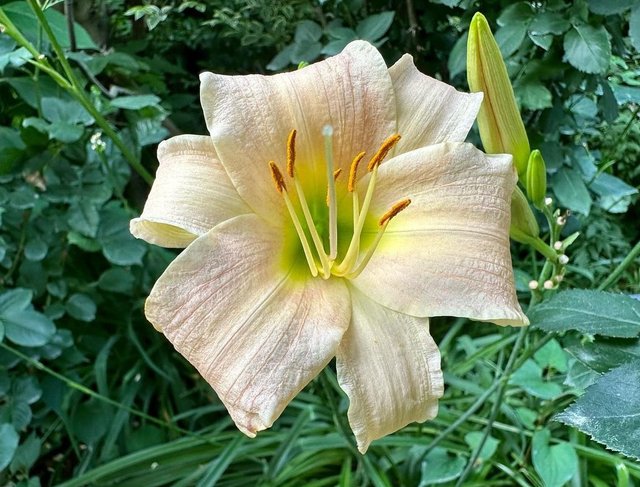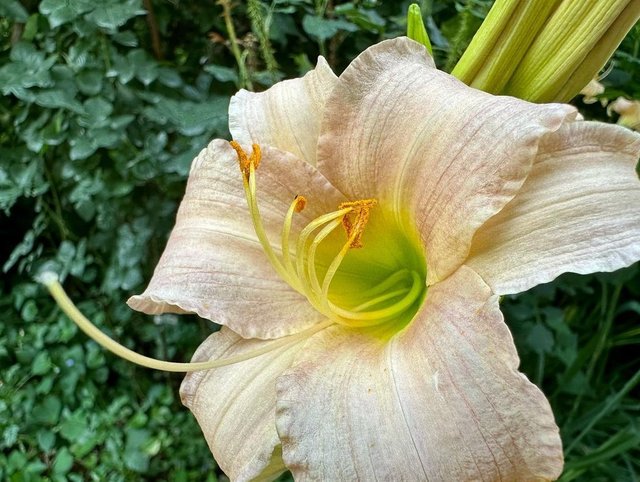



Daylilies perennial flowering plants renowned for their vibrant blooms and resilience. These exquisite flowers have captured the hearts of gardeners and enthusiasts worldwide, earning them a special place in gardens, landscapes, and even culinary traditions.One of the most enchanting aspects of daylilies is their diverse range of colors and patterns. From fiery reds and oranges to soft pastels and creamy whites, daylilies offer a kaleidoscope of hues to suit any garden palette. Some varieties even boast striking bi-colored or striped petals, adding an extra dimension of visual interest to their blossoms.
In the language of flowers, daylilies symbolize renewal, rebirth, and new beginnings. Their fleeting blooms, which typically last only a day remind us to embrace the beauty of the present moment and appreciate life's transient nature. Despite their brief lifespan, daylilies are prolific bloomers, producing a succession of flowers throughout the summer months, ensuring a continuous display of color in the garden.One of the reasons for the enduring popularity of daylilies is their ease of cultivation. These hardy perennials are adaptable to a wide range of growing conditions, thriving in both full sun and partial shade. They are also tolerant of various soil types, although they prefer well-drained, slightly acidic soil. With minimal maintenance requirements and few pests or diseases to contend with, daylilies are an ideal choice for both novice and experienced gardeners alike.
While daylilies are primarily grown for their ornamental value, they also hold significance beyond their aesthetic appeal. In some cultures, daylilies are prized for their culinary uses. The edible flowers can be incorporated into salads, soups, stir-fries, and desserts, adding a delicate flavor and colorful accent to dishes. Additionally, daylilies have been used in traditional medicine for their purported health benefits, although caution should be exercised when consuming them, as some parts of the plant may be toxic if ingested in large quantities.Daylilies have a rich history dating back thousands of years, with records of their cultivation found in ancient Chinese, Greek, and Roman civilizations. Over the centuries, hybridizers and enthusiasts have worked tirelessly to breed new varieties with improved traits, resulting in an ever-expanding array of daylily cultivars available to gardeners today. Whether grown for their striking beauty, culinary versatility, or symbolic significance, daylilies continue to captivate and inspire generations of plant lovers around the world.